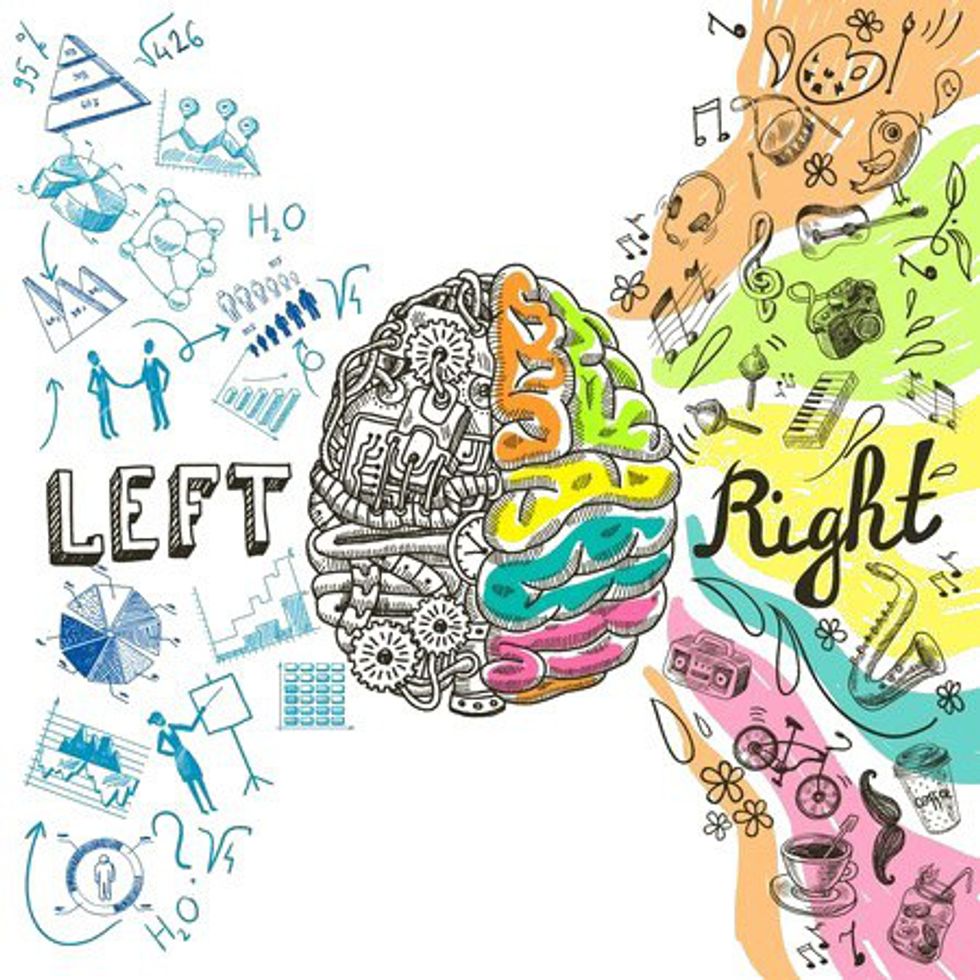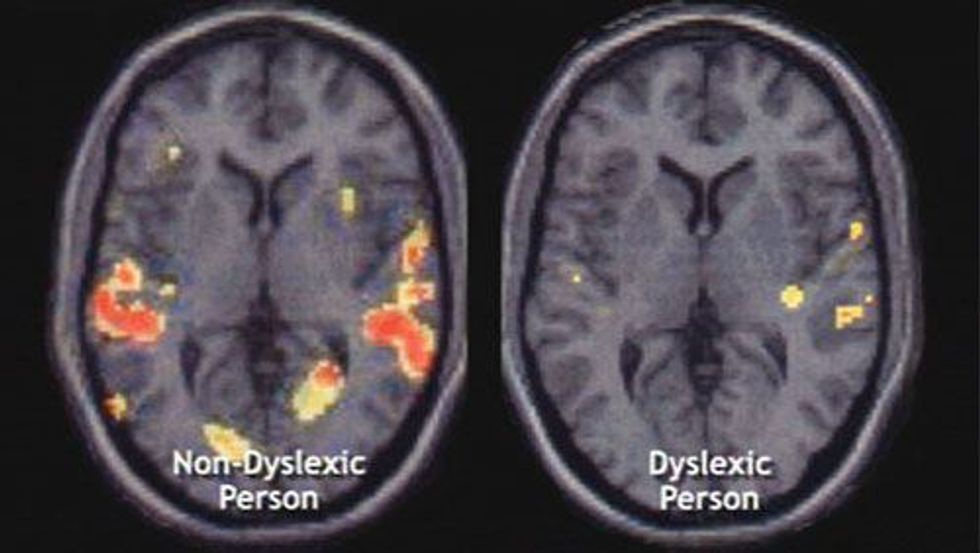My mom is calling me on my way home from class, just as I’m fiddling for my keys that somehow always end up tangled with my headphones at the bottom of my bag. I answer the phone and shuffle into my apartment with the screen pressed awkwardly between my ear and shoulder blade. We chat for a little while, as usual, but a few minutes into the conversation, she gasps and tells me she has the funniest story to tell me about my brother.
My family went to dinner with my grandparents a couple of days before. They sat down, had a great meal, had great conversation, and had an overall wonderful time. Well, the meal is coming to a close, and my brother gets this glint in his eye like he’s about to say something mischievous. He looks at my grandfather, a kind of intimidating, mostly balding man who never let go of his “East Coast meanness” even though he’s been living in California for more than 20 years now.
“Granddad,” he calls out.
“Yeah, Luke?”
“I’m so sorry, Granddad, that your brain is small.”
“Excuse me?,” he asks, looking baffled.
“Well, because you’re not dyslexic.”
Now, my brother, Luke, is seven years old. And he’s ornery, Just ask him; he’s been telling us that since he was two. Like two-thirds of my family, he’s also dyslexic. He’s grown up in an environment that wasn’t just dyslexia-friendly, but designed with it in mind. Being as it was, this taught him a lot of fun facts about his disability. One of those facts that seemed to solidify in him is that individuals with dyslexia have slightly larger right brains.
As you can probably guess by now, my grandfather isn’t dyslexic. And he doesn’t have a small brain either. But to my brother, this was a way of interpreting the facts he’d learned. He just didn’t have all the reasoning to back it up.
While my brother was content to just have the fun facts, the same couldn’t really be said for me. Over the years, I’ve become fascinated with what makes a dyslexic person dyslexic. Did you know Albert Einstein was dysgraphic? Or that Agatha Christie was dyslexic? Or that in the dyslexic brain, words don’t just flip upside down; they’re made in 3D? And so, I wanted to share a few little glimpses into understanding what goes on in the dyslexic brain, especially with that slightly overdeveloped right brain. There’s no way to fit all of the scientific findings about the dyslexic brain in one, relatively short article, so if you like this piece, and would like others like it, feel free to leave a comment below.
Now, a quick review of Psychology 101 for some groundwork on the subject. The human brain has two sides: the right and the left. They are separated by the corpus callosum, which works to take messages from one side to the other. Now as far as movement and sight are concerned, the sides of the body and the side of the brain are actually crisscrossed, meaning that the left brain is responsible for the right half of the body’s movement and sight, while the right brain is responsible for the left half. The right and left sides of the brain also perform different tasks and have different skills. The left brain is often associated with logic, sequencing, mathematics and language production. The right brain is associated with creativity, visual imagery, intuition and the arts (audio, written and visual) and rhythm. It's important to note that this isn't a black and white concept -- there's often crossover between the hemispheres.
Having that little introduction, it makes a lot more sense why dyslexic individuals display certain characteristics due to the activity that’s happening in the different hemispheres. Dyslexia has been described as a condition where the left hemisphere is underutilized, so the right hemisphere will compensate and process the information. This is part of the reason why dyslexia is also known for learning differently, because it involves using different parts of the brain to do the same tasks. This difference in hemisphere dependence shows up in a variety of different ways. Going back to the idea that the left hemisphere controls the right side of the body and the opposite is true for the right side, it’s not surprising to see children with dyslexia can sometimes have difficulty when they’re first developing fine motor skills. It’s also more common for kids with dyslexia to have difficulty choosing a dominant hand to write with, or being partially or completely ambidextrous. There can also be an over-reliance on one side of the body with tasks like doing up and down stairs and only stepping up with one foot.
The definition that most people are familiar with when it comes to understanding dyslexia is a difficulty reading. While it is actually much more complex than that, the usage of hemispheres does come into play a lot when asking why the difficulty exists. Non-dyslexics process language in three different regions of the left hemisphere. At the front of the brain, there is one area used for sounding out a word, while at the back there are two regions used for recognizing words that are already familiar and processing the meaning of words. Dyslexics, however, use the right side of the brain to process language (click here to see a simulation designed to showcase how a dyslexic individual could see any given piece of text). This mostly applies to written language, as speech production and comprehension are processed in both hemispheres. A dyslexic brain adapts to use the visual processing capabilities that the right brain already has as a means of processing language. This is what makes dyslexic individuals so creative, because they rely so heavily on a visual construction of a word to understand the meaning of it. Because of the high level of visualization and imagination, dyslexic individuals are also known as being visual spatial learners.
While this only barely scratches the surface of what dyslexia looks like and how dyslexic characteristics are expressed, it does help to shape the idea that dyslexia is not necessarily a lack of development in the brain, but often an overdevelopment. With this overdevelopment comes weaknesses, but also incredible gifts and strengths that can be used to create, impact and shape the world around us.
























